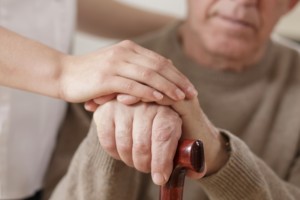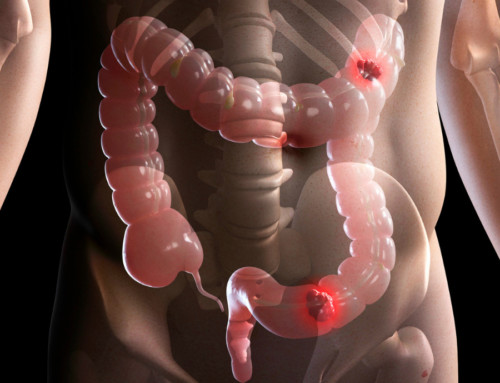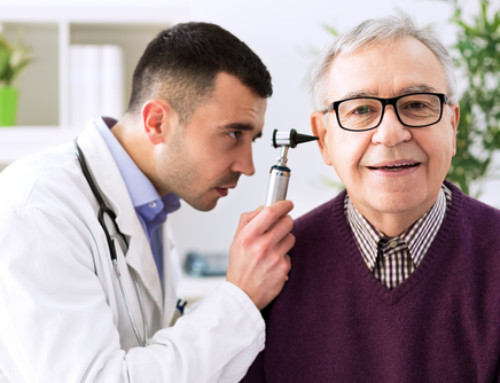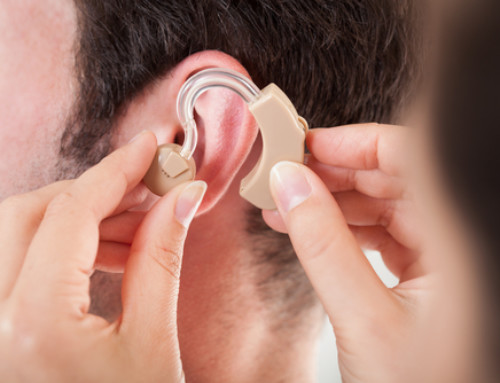 More than one million people live with Parkinson’s disease in the U.S., but no two experiences are the same. Parkinson’s affects individuals in vastly different ways: for some, Parkinson’s may first show up as slight hand tremors, and in others, it might appear as an unusual level of stiffness. For one person it may progress slowly, and in someone else, it may spread frighteningly fast.
More than one million people live with Parkinson’s disease in the U.S., but no two experiences are the same. Parkinson’s affects individuals in vastly different ways: for some, Parkinson’s may first show up as slight hand tremors, and in others, it might appear as an unusual level of stiffness. For one person it may progress slowly, and in someone else, it may spread frighteningly fast.
There are some consistencies in how the disease works, however, and understanding these similarities can help prepare for what to expect if you or a loved one is diagnosed with Parkinson’s disease. From how it starts to how it progresses through its five stages, here are some of the ways Parkinson’s affects the human body.
How it Starts
Parkinson’s disease is a “movement disorder,” in the same family as cerebral palsy or Tourette’s syndrome. Movement disorders like these are linked to neurologically-based abnormal physical behavior. Doctors recognize three things that characterize Parkinson’s disease: slow movements, rigid movements, and tremors.
The exact cause of Parkinson’s is not known, but researchers think it may be a combination of genetics and environmental factors. It is labeled as a neurodegenerative disorder, and symptoms of the disease are caused by the loss of dopamine-producing brain cells.
Dopamine is responsible for sending messages related to movement and coordination within the brain; so when dopamine levels drop, it’s harder to control or coordinate movement. It can also be tied to mental and non-motor skills. With Parkinson’s, dopamine levels gradually drop over time, and so the symptoms get progressively worse.
Early Signs of Parkinson’s
Most people who are diagnosed with Parkinson’s are 60 years of age or older, but early onset Parkinson’s is possible, too.
In the first and second stages, the signs of Parkinson’s are usually mild. Although 60-80% of the dopamine-producing cells in your brain are gone, you will still be able to go about your usual day-to-day activities.
Some of the most common symptoms during these stages include:
- tremors in the hands, arms, feet, or other body parts when resting
- stiffness and rigidity in muscles
- Bradykinesia (or slow movement), which can also cause a mask-like appearance of the face due to a lack of facial expressions.
What Happens as Parkinson’s Progresses
As the disease progresses, the physical symptoms of Parkinson’s become more severe and make everyday tasks more difficult.
In the third and fourth stages, movement and coordination are slowed and impaired, limiting mobility. Secondary symptoms such as voice changes, an altered sense of smell, or digestive system issues can often appear in these mid-stages (but they can arise at any point). You may also suffer from anxiety, depression, confusion, or dementia.
In the fifth and final stage, the symptoms of Parkinson’s result in a loss of mobility to the extent that individuals are unable to walk or live without full-time assistance. Non-motor skills also deteriorate at this stage, and a patient’s symptoms may include hallucinations, delusions, and even dementia.
While this is a life-changing disease, it’s important to remember that all is not lost; with new developments in treatment, prevention methods, and medication, life after the onset of Parkinson’s has never looked brighter.
How Treatment Works
Thanks to modern research, treatment options are effective enough to slow the progression of Parkinson’s in many cases. The disease is typically treated with medications that replace the lost dopamine.
Alternatives are being researched, but for now, medication and complementary therapies like support groups and exercise are the best ways to manage the symptoms and progression of Parkinson’s. Regular exercise has also shown promise in helping to delay and prevent the onset of Parkinson’s.
The lifespan of someone with Parkinson’s disease is comparable to someone who isn’t living with it. Parkinson’s is not a fatal disease, but falls, choking, or other mobility-related issues pose risks, so it’s important to understand the disease and make sure you get help.
Contact Tri-City Medical Center and schedule an appointment if you think you may be developing Parkinson’s. We can offer you the support you need to navigate this disease.





